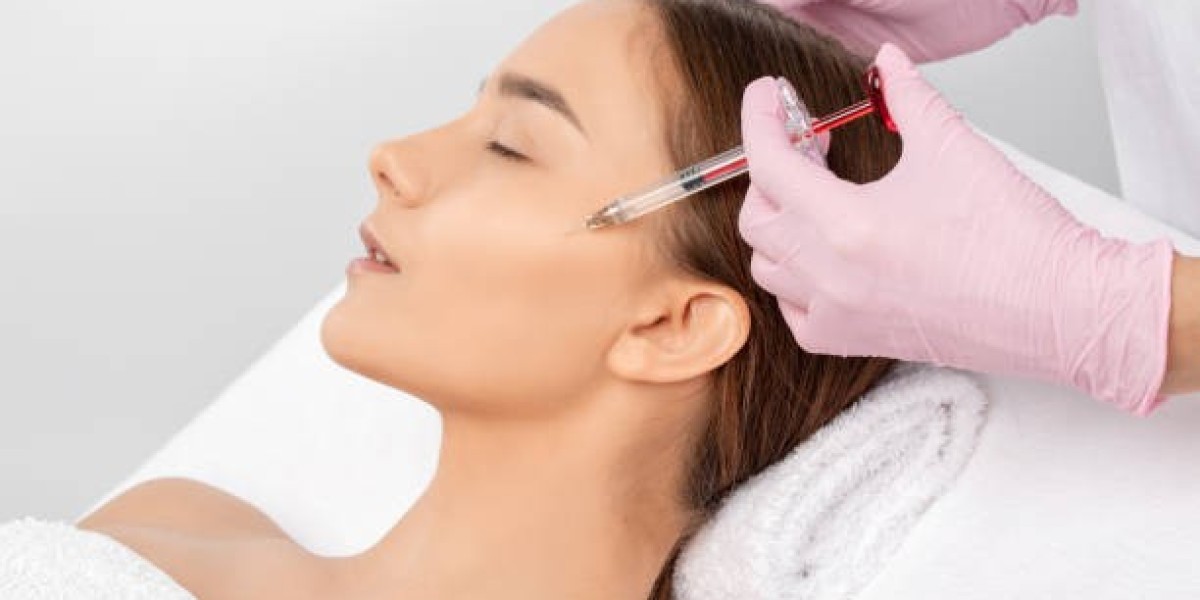Platelet-Rich Plasma (PRP) treatment has gained significant attention in recent years as a promising solution for various medical and aesthetic concerns. With its rising popularity, many individuals in Riyadh are left wondering whether this innovative therapy is suitable for their needs. In this comprehensive overview, we will explore the fundamentals of PRP Treatment in Riyadh(علاج البلازما الغنية بالصفائح الدموية في الرياض) its benefits, potential risks, and who can benefit most from it. By the end of this blog, you will have a clearer understanding of whether PRP treatment is the right choice for you.
What is PRP Treatment?
Understanding the Basics of PRP
PRP Treatment in Riyadh involves using the patient’s own blood to promote healing and rejuvenation. The process begins with a simple blood draw, after which the blood is processed to separate the platelets from other components. Platelets are rich in growth factors and play a crucial role in healing and tissue regeneration.
The Science Behind PRP
The scientific premise of PRP treatment lies in its ability to harness the body’s natural healing mechanisms. When injected into specific areas of the body, PRP can accelerate healing, stimulate collagen production, and improve overall tissue health. This has made it popular in fields such as orthopedics, dermatology, and aesthetics.
Benefits of PRP Treatment
Natural Healing Process
One of the most significant advantages of PRP Treatment in Riyadh is that it utilizes the body’s natural healing capabilities. Since PRP is derived from the patient’s blood, the risk of allergic reactions or rejection is minimal.
Versatile Applications
PRP therapy is versatile and can be used for various purposes, including:
- Hair Restoration: Stimulating hair growth in individuals with thinning hair or alopecia.
- Skin Rejuvenation: Reducing wrinkles, fine lines, and improving overall skin texture.
- Injury Recovery: Accelerating the healing process for sports injuries and chronic pain conditions.
Quick Recovery Time
Another appealing aspect of PRP treatment is the relatively quick recovery time. Most patients can resume their normal activities shortly after the procedure, making it an attractive option for those with busy lifestyles.
Who is a Good Candidate for PRP Treatment?
Ideal Candidates
Not everyone is suitable for PRP Treatment in Riyadh. Ideal candidates typically include:
- Individuals experiencing hair loss or thinning.
- Those looking for non-surgical solutions for skin rejuvenation.
- Athletes recovering from injuries or chronic pain.
Contraindications to Consider
While many people can benefit from PRP, certain conditions may make treatment less effective or even risky. These include:
- Blood Disorders: Conditions like thrombocytopenia can affect platelet counts and may hinder the effectiveness of PRP.
- Active Infections: Any active skin infections or systemic illnesses may need to be treated before considering PRP.
The PRP Treatment Process
Initial Consultation
Before undergoing PRP Treatment in Riyadh, patients typically start with an initial consultation. During this visit, a healthcare professional will evaluate your medical history, discuss your concerns, and determine if PRP is the right option for you.
Blood Collection and Processing
Once cleared for the treatment, a small amount of blood is drawn from the patient. This blood is then placed in a centrifuge, which spins it at high speeds to separate the platelets from other components. This process usually takes about 10-15 minutes.
Injection of PRP
After processing, the concentrated PRP is injected into the targeted areas. Depending on the treatment area, multiple injections may be required. The procedure is typically well-tolerated, but some patients may experience mild discomfort.
Aftercare and Recovery
Post-Treatment Guidelines
Following PRP Treatment in Riyadh, it’s crucial to follow specific aftercare guidelines to optimize results. Common recommendations include:
- Avoiding strenuous activities for a few days.
- Keeping the treated area clean and avoiding makeup for 24 hours (in the case of facial treatments).
- Staying hydrated to support the healing process.
Expected Results and Timeline
While many patients notice improvements soon after treatment, optimal results usually take several weeks to become fully apparent. For hair restoration, it may take up to six months to see significant changes.
Potential Risks and Side Effects
Common Side Effects
As with any medical procedure, PRP Treatment in Riyadh carries potential risks and side effects. Some common side effects include:
- Mild swelling and redness at the injection site.
- Temporary pain or discomfort.
- Bruising in the treated area.
Rare Complications
While rare, more severe complications can occur, such as infection or nerve damage. It is essential to choose a qualified professional for the procedure to minimize these risks.
Cost Considerations
Pricing Factors
The cost of PRP Treatment in Riyadh can vary based on several factors, including:
- The provider’s experience and reputation.
- The number of treatment sessions required.
- The area of the body being treated.
Is It Worth the Investment?
Many patients find PRP treatment to be a worthwhile investment due to its potential for long-term benefits. However, it's essential to weigh the costs against your specific needs and desired outcomes.
Conclusion: Is PRP Treatment Right for You?
In conclusion, PRP Treatment in Riyadh(علاج البلازما الغنية بالصفائح الدموية في الرياض) can offer significant benefits for those seeking natural healing solutions for hair loss, skin rejuvenation, or injury recovery. However, it is essential to consider your individual circumstances, medical history, and aesthetic goals. If you believe you might be a suitable candidate, scheduling a consultation with a qualified professional can help you make an informed decision.









